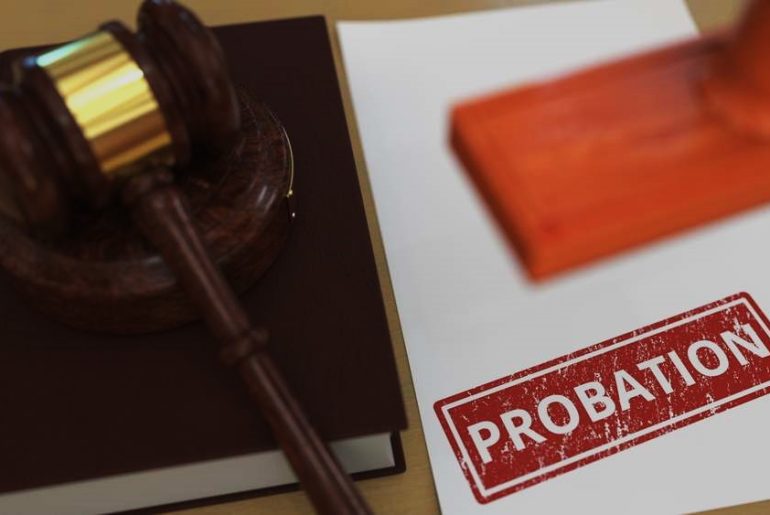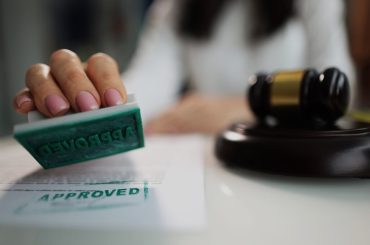Unsupervised probation is a form of probation available in numerous states, designed for individuals deemed low-risk to the community, typically involving misdemeanor offenses. Unlike supervised probation, where individuals regularly report to a probation officer, those on unsupervised probation report directly to the court.
The conditions of unsupervised probation generally require the individual to adhere to several specific terms, including:
- Avoiding the commission of any new crimes,
- Appearing in court for scheduled progress reports,
- Fulfilling financial obligations such as paying fines or making court-ordered restitution payments.
This type of probation allows for less direct oversight by probation authorities, reflecting the lower perceived risk presented by the offender.
What is unsupervised probation?
Unsupervised probation is a form of probation where the individual does not report to a probation officer. Instead, after a criminal conviction, the individual is released into the community and reports either to the court directly or to a private company contracted by the state’s Probation Department. This contrasts with standard probation in criminal cases, where the offender is under the direct supervision of a probation officer and is released into the community.
Both types of probation require the probationer to adhere to specific terms and conditions throughout the duration of the probation period.
Courts typically assign unsupervised probation in scenarios where:
- The individual is convicted of a low-level misdemeanor,
- The individual is a first-time offender,
- The individual poses a low risk of danger to the community,
- The individual has already completed many of the terms of their probation under supervised conditions.
Often, unsupervised probation follows a period of supervised probation. This transition occurs because the individual has already met most of the probation requirements under close supervision, and there remains little need for continued close monitoring.
In some states, like California, probation for misdemeanor cases is almost invariably unsupervised, while probation for felony cases is usually supervised.

What should I do while on unsupervised probation?
While on unsupervised probation, individuals are required to adhere to certain terms and conditions, much like those on supervised probation, but generally with less stringent oversight.
Key conditions typically include:
- Making all required court appearances and submitting progress reports to the court,
- Avoiding the commission of any new offenses,
- Paying any imposed fines,
- Completing community service as ordered.
In contrast, the conditions for supervised probation are often more extensive and can include:
- Regularly reporting to a probation officer,
- Not relocating out of the county without prior approval,
- Paying fines, court costs, and/or victim restitution,
- Participating in mandatory individual or group therapy sessions,
- Enrolling in and completing treatment programs, such as anger management,
- Fulfilling community service requirements,
- Maintaining gainful employment throughout the duration of the probation,
- Adhering to any issued restraining orders, particularly in cases involving domestic violence,
- Abstaining from alcohol and drugs and participating in substance abuse programs as required,
- Not driving with any detectable amount of alcohol, and complying with DUI blood or breath tests if under DUI probation,
- Attending all scheduled court dates,
- Undergoing random drug and alcohol testing,
- Possibly being placed under house arrest,
- Consenting to warrantless searches,
- Committing no new crimes during the probation period.
What happens if a violation of probation?
If you violate the terms of your unsupervised probation, the court has several options for addressing the violation. These options include:
- Issuing a warning to the probationer,
- Imposing stricter conditions on your unsupervised probation,
- Converting your unsupervised probation to supervised probation,
- Enforcing your suspended jail sentence, requiring you to serve time in jail.
In the event that a violation is alleged, the court will conduct a probation violation hearing. The purpose of this hearing is for the judge to assess whether there was indeed a breach of the probation terms.
What are the benefits of unsupervised probation?
Unsupervised probation offers several advantages for individuals who qualify for this form of monitoring, including:
- Reduced Burden: There is no requirement to meet regularly with a probation officer, which can alleviate stress and reduce logistical challenges.
- Cost Savings: Individuals on unsupervised probation are not required to pay supervision fees, leading to financial savings.
- Less Stringent Conditions: The terms of unsupervised probation are generally less restrictive compared to those of supervised probation, providing more personal freedom.
These benefits make unsupervised probation an appealing option for both the courts and eligible offenders, particularly those deemed low-risk.
Can a criminal defense attorney help?
Yes, engaging a criminal defense attorney is crucial when facing criminal charges.
- Legal Defense: An attorney can challenge the charges against you by presenting legal defenses, such as demonstrating that law enforcement lacked probable cause for an arrest.
- Sentencing Advocacy: If convicted, your lawyer can argue on your behalf for the most favorable sentencing conditions, which might include eligibility for either supervised or unsupervised probation, depending on the circumstances.
- Free Consultations: Many defense attorneys and law firms offer free initial consultations. This allows you to discuss your case and receive legal advice without any financial commitment.
- Confidentiality: Communications between you and your attorney are protected by the attorney-client privilege. This ensures that your lawyer cannot disclose any information you share without your consent.




